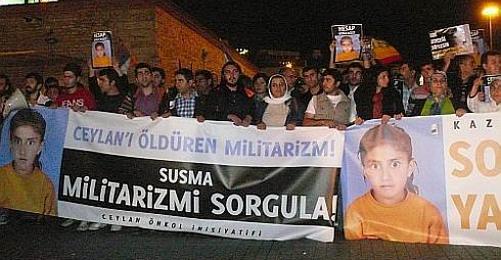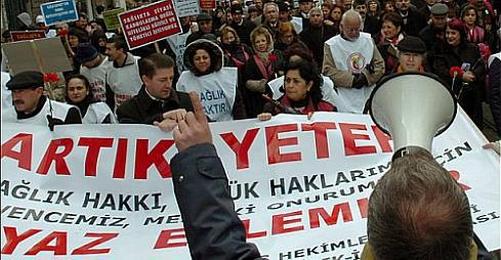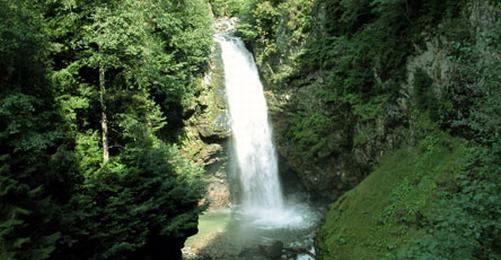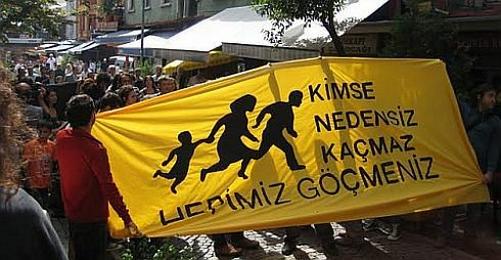Tuzla Pollution Suspects Released
Tuzla Republic Chief Prosecutor Bayram Albayrak ruled a lack of jurisdiction in the case noting that article 181 of the new Turkish Penal Code introducing jail terms for polluters would not be in effect until 12 October 2006. He said such actions, for the time being, did not constitute a crime.
Truck driver Mehmet Suicmez, scoop operator Ali Ayvenli, temporary municipal police officer Serafettin Eyuboglu and Turan Yilmaz, the guardsman of the field in which the barrels were found, were detained Tuesday by the para-military gendarme for their alleged involvement in the pollution.
Their release came after four hours of interrogation in which they confessed to having obtained the barrels from the Gebze-based company, Unifar. Examination of the contents of the barrels showed they contained a high quantity of the carcinogenic and mutagenic agent, fenol. Some of the barrels had already corroded underground.
Prosecutor Albayrak said that as the suspects had confessed they received the barrels from the Unifar company and that due to its location, his office would make a criminal complaint on the issue to the Prosecutor's Office of Gebze.
"[But] They will do the same thing there" he explained. "Because there is no possible practice in the law, these activities do not constitute a crime".
Ozkan: Citizens have greatest responsibility
Noyan Ozkan fro Izmir Bar Association explained that article 181 of the new Penal Code that will go into effect in October foresees 6 to 12 months imprisonment for environment polluters.
Ozkan added, however, that rather that leave the affair to prosecutors alone, action should start even now in the way of exerting pressure on institutions, professional and industrial chambers as well as relevant companies.
"Citizens have the greatest responsibility on pollution issues such as this" Ozkan said, calling on individuals and groups to utilise the Law on Right to Information, making applications for information to public enterprises, collecting information and where required taking action against polluters in accordance with the Penal Code.
Ozkan noted that the environment law and relevant regulations contained amendments that were in favour of polluters but that the real vacuum in this field stemmed from the failure of non government organisations, academic circles and professional chambers to create the required control mechanisms.
"What is more important than amending the environment law is to increase environmental awareness" Ozkan said, adding that the language used by the national media on environment issues was creating negative feelings among the people and in reality pacifying their interaction with environmental issues.
"The corporate media is using a language that outcasts environmental rights advocates, radicalising them in the eyes of the society. If the situation is really serious, it even ridicules them. This way public health is being disregarded and actions committed against the environment are being ignored".
Dokmecibasi: They suffer from their own hands
Greenpeace Mediterranean Toxic Materials Campaign coordinator Banu Dokmecibasi said the Envrionment and Forests Ministry had a great role in delaying article 181 of the Penal Code under pressure from municipalities and industry lobbies, noting that the Tuzla incident now showed what such a delay came at a cost.
"Now they are suffering from their own actions" she said. "And they are behaving as if they knew nothing of these. To the extent that even the Minister is complaining of the situation as if he was not the Minister of Environment. This is a tragicomedy".
Dökmecibası believes that in incidents such as that which was discovered in Tuzla, incident-specific special commissions should be formed and these should utilise the available assistance of NGOs and universities.
"The picture we see before us is very negative" warns Dokmecibasi. "There is no environment policy. There is no waste disposal policy. Since the Ministry made the initiative it did in Tuzla, it might as well form a policy too and look into the developments that are endangering public health in Turkey".
The Greenpeace activist is also critical of the Environment Minister's apparent displayal of the Izmit Waste and Waste Purification, Burning and Evaluation company (İZAYDAS) as if it was a saviour.
No Recycling Systems
Greanpeace's Dokmecibası told Bianet that a statement by IZAYDAS officials confirming that only a small part of waste in Turkey is being burned was a positive development as it encouraged the construction of 15 more solid waste burning facilities in the country with the support of the Ministry.
She explained, however, that companies which had little favour in Europe were seeing Turkey as an investment area and that there was concern that more than burning waste products, these companies could end up creating even more poisonous ones.
Dokmecibası recalled that the Dangerous Waste Control Regulation (TAKY) was based only on burning or burying waste and that because of this, at current no recycling system was being used.(EZO/II/YE)
Politician and NGOs Urge for Clarification of Önkol's Death

EU PROGRESS REPORT
Women's Rights Must be Implemented in Daily Life

Protests against Health Care Contribution Rate

Greens Launch Trial for Palovit Valley

"When Will Mohsen Abdolkhani and Hamid Karimnia Be Released?"





